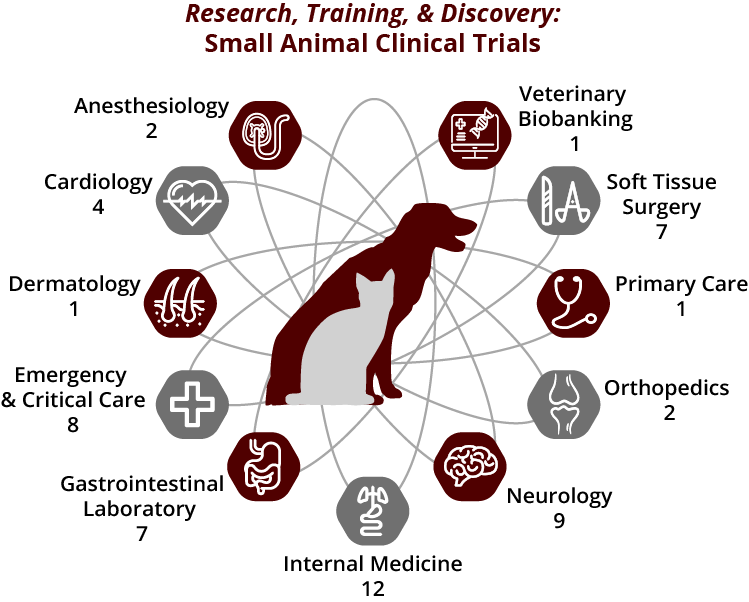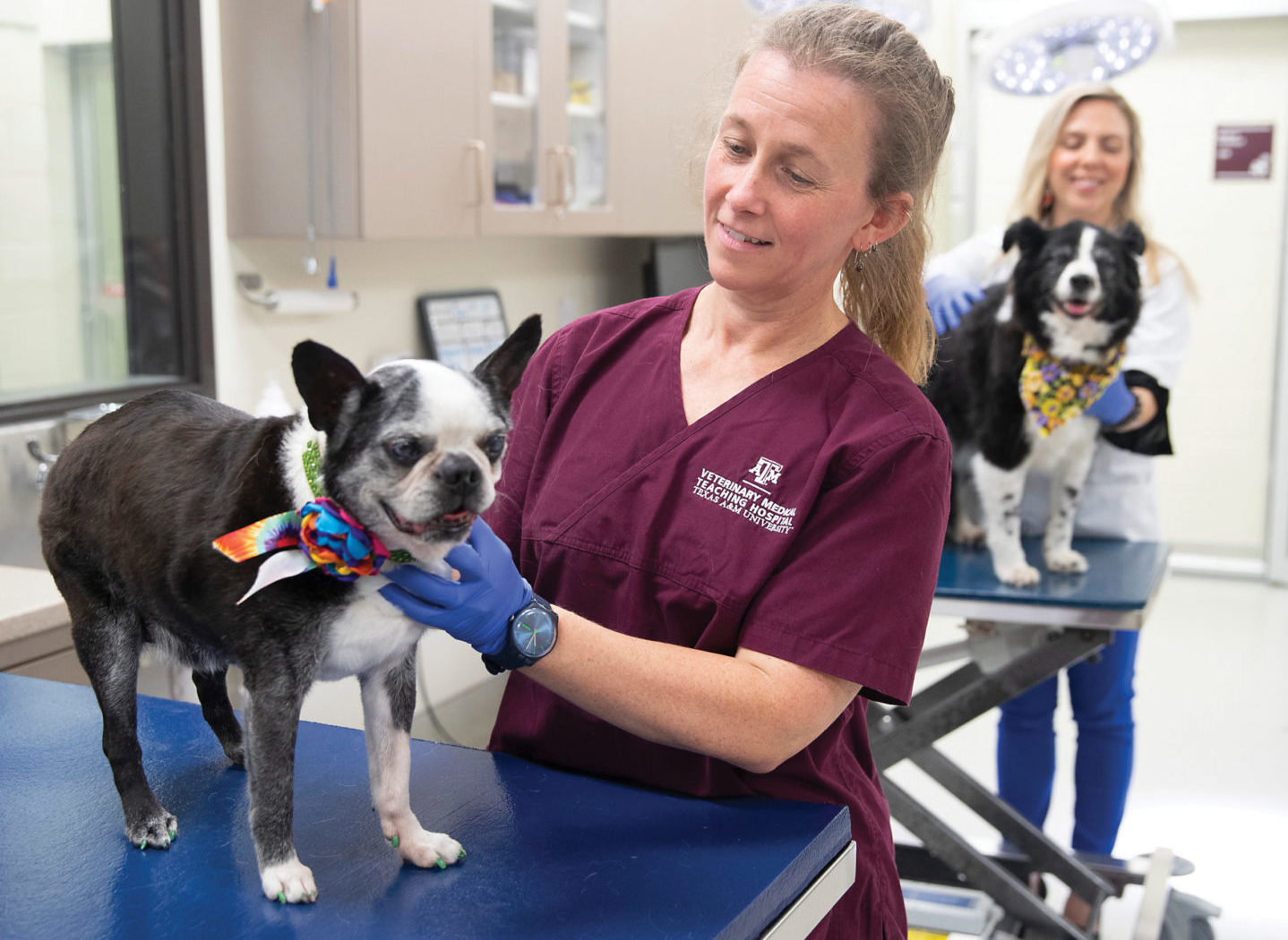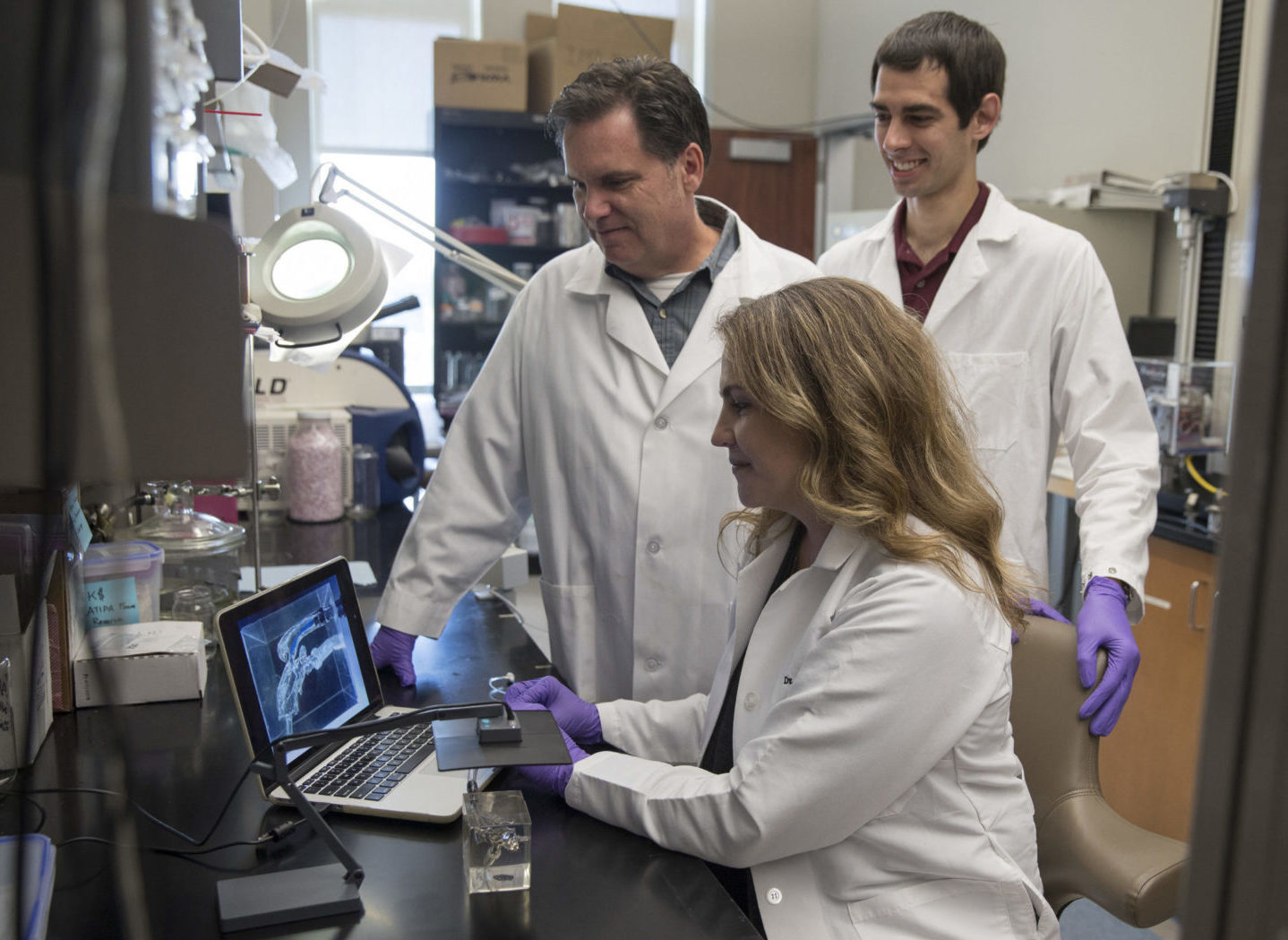Unlimited Collaborative Clinical Trials
The Linda & Dennis Clark ’68 Small Animal Teaching Hospital will expand opportunities for the Texas A&M College of Veterinary Medicine & Biomedical Sciences (VMBS) to advance treatments, surgeries, and healthcare research by providing a space conducive to collaboration among colleagues across Texas A&M University and beyond.
We invite you to join us in building upon the VMBS’s tradition of research excellence; in expanding our influence in collaborative, cutting-edge research; and in furthering advances in veterinary medicine and human health by giving now.

Global One Health: Collaboration
in Support of Translational Medicine
Dog Aging Project: TRIAD
Part of Dr. Kate Creevy’s Dog Aging Project, TRIAD is a collaborative clinical trial examining promising anti-aging effects of the drug rapamycin. This trial:
-
- includes 350 dogs from around the country who will visit cardiologists at Texas A&M and partnering veterinary teaching hospitals. The Dog Aging Project has more than 80,000 enrolled dogs whose owners participate by filling out surveys on their pets over the course of 10 years.
- is funded by the National Institute on Aging, part of the National Institutes of Health (NIH). The Dog Aging Project is a $23-million initiative co-led by University of Washington School of Medicine researchers.
- has translational value for humans and has received considerable media attention.
Cardiac Effects of Chagas Disease
Dr. Ashley Saunders, in collaboration with Dr. Sarah Hamer and Dr. Jörg Steiner from the VMBS, is evaluating the cardiac impact of the protozoan parasite Trypanosoma cruzi on naturally infected, asymptomatic dogs to guide future, novel prevention, and treatment studies. The trial:
-
- is funded by the American Kennel Club and private donations designated for Chagas disease research.
- is one of the multiple studies being conducted on this disease, which is transmitted by kissing bugs and damages the heart, leading to heart failure and sudden death.
- is highly translational because Chagas disease affects both animals and humans in the United States and Latin America.
Advancing Medicine: A Vision of National Leadership

Testing A Non-Surgical Treatment

Mitral Valve Disease in Dogs

GI Lab Tests Available Worldwide



